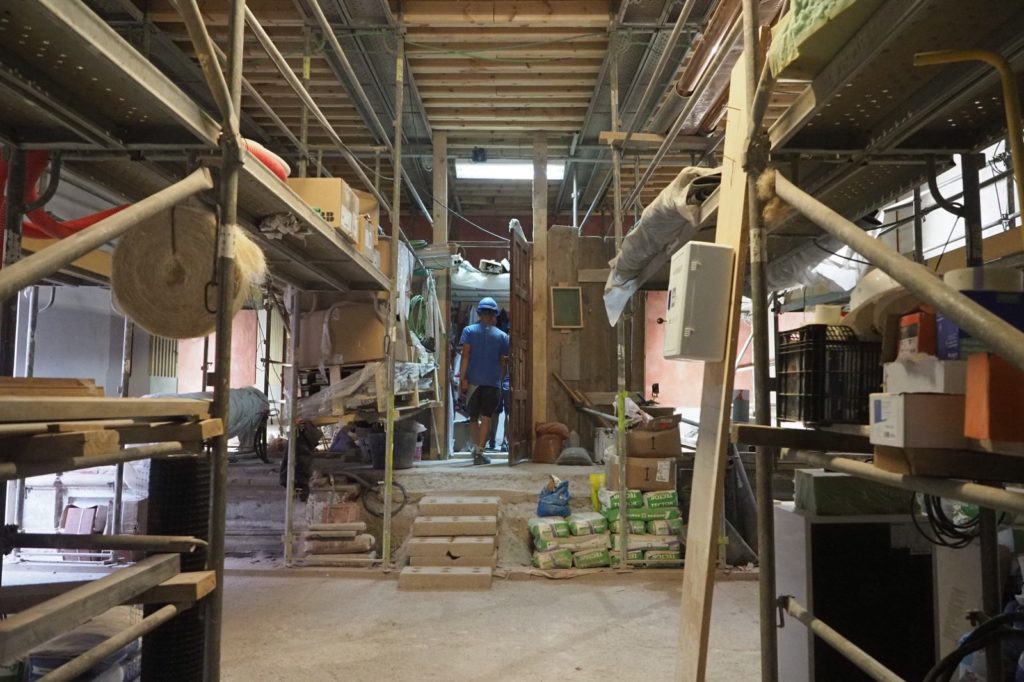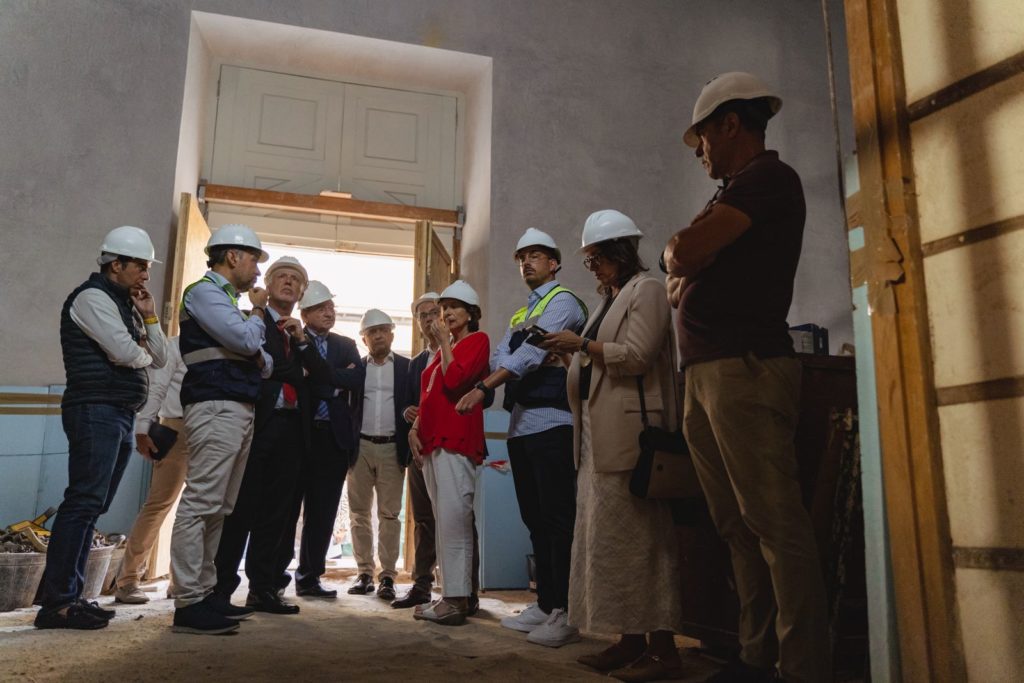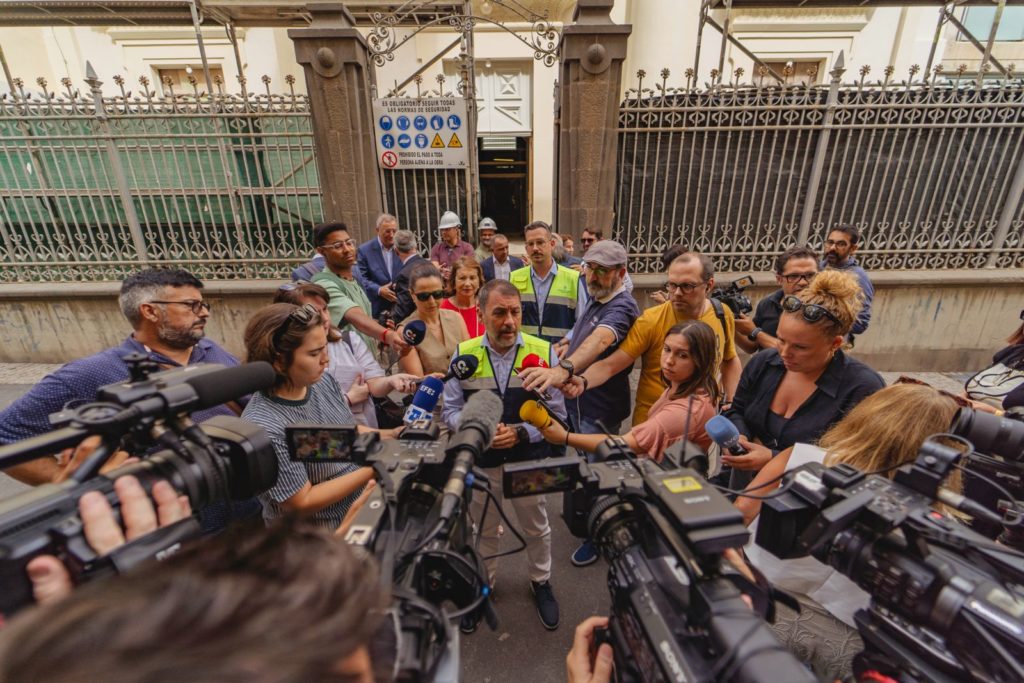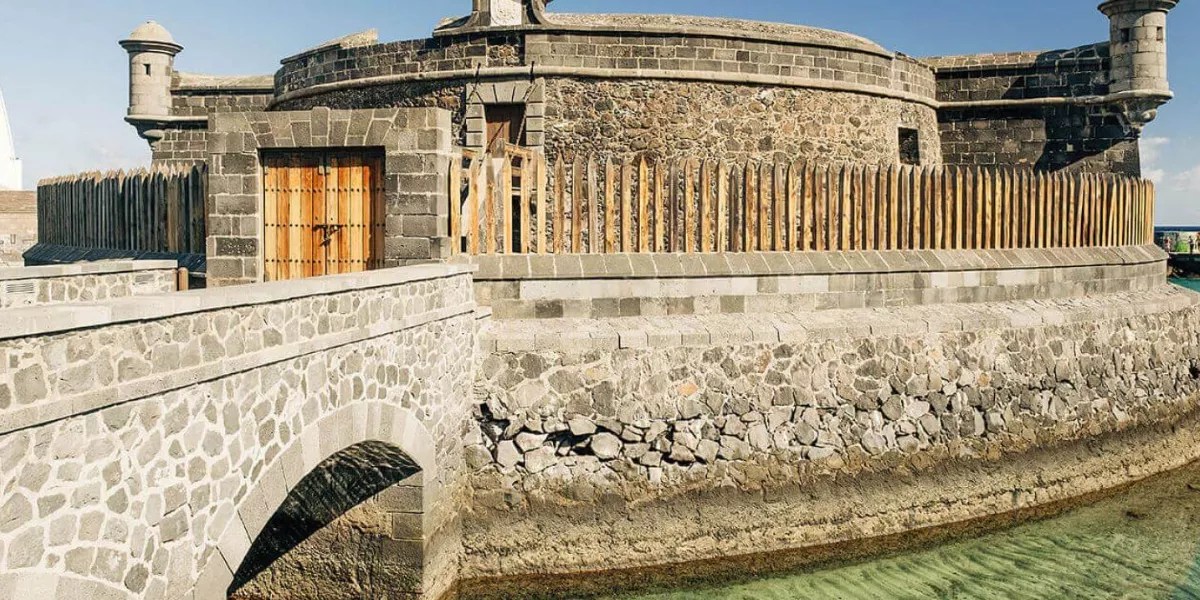The mayor of the capital, José Manuel Bermúdez welcomed a visit from the Minister of Territorial Policy and Democratic Memory, Angel Victor Torres, along with the secretary of state for the sector, Fernando Martinez, to review the renovations taking place at the Masonic Temple in Santa Cruz de Tenerife.
This refurbishment, funded with 3 million euros from the State, is expected to be finalised in February or March 2025, with plans to open it to the public by mid-year. The mayor stated that work is already underway on the content for this venue, aimed at promoting the history of masonry, both regionally and internationally.
Bermúdez clarified that although the completion of the project was initially scheduled for December, this postponement is inconsequential, considering the extensive nature of the intervention. He further highlighted the importance of developing informative content regarding Freemasonry and the building’s history, which is rich with distinctive symbols globally. He noted that the Masonic Temple is comparable to other extraordinary structures on an international scale, enhancing its narrative and attractiveness to tourists.
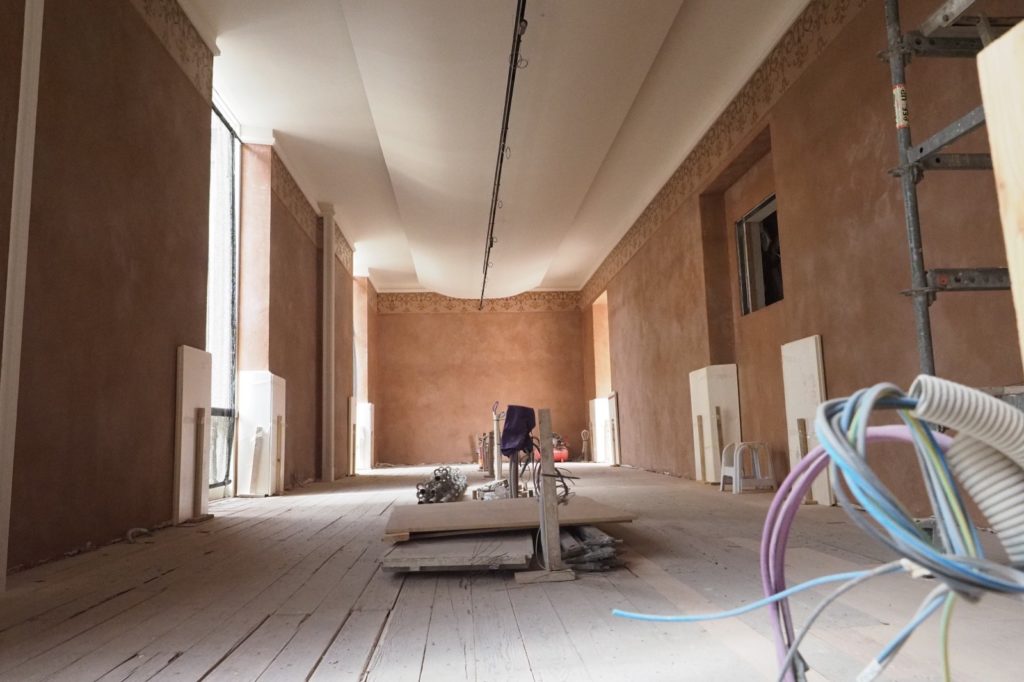

In addition, Angel Victor Torres expressed gratitude to the technical team and the local government for their efforts in restoring this municipal edifice. He reiterated that the Democratic Memory Law is centred on truth, justice, and reparation, noting that masonry was among the entities victimised by the dictatorship, thereby dispelling misconceptions perpetuated by Franco’s propaganda regarding this institution.
The architect overseeing the renovations, Maria Nieves Febles, emphasised the intricacies of the project and the dedication needed to grasp the symbolic significance of the structure. She mentioned that gathering information related to Masonic symbolism in partnership with Masons was crucial to honouring all aspects of the temple.
Ultimately, the refurbishment aims not only at the physical restoration of the temple but also at adapting it for new functions that maintain its heritage value. The initiative involves restoring the most emblematic areas, such as the Meeting Room and the Agape Hall.


